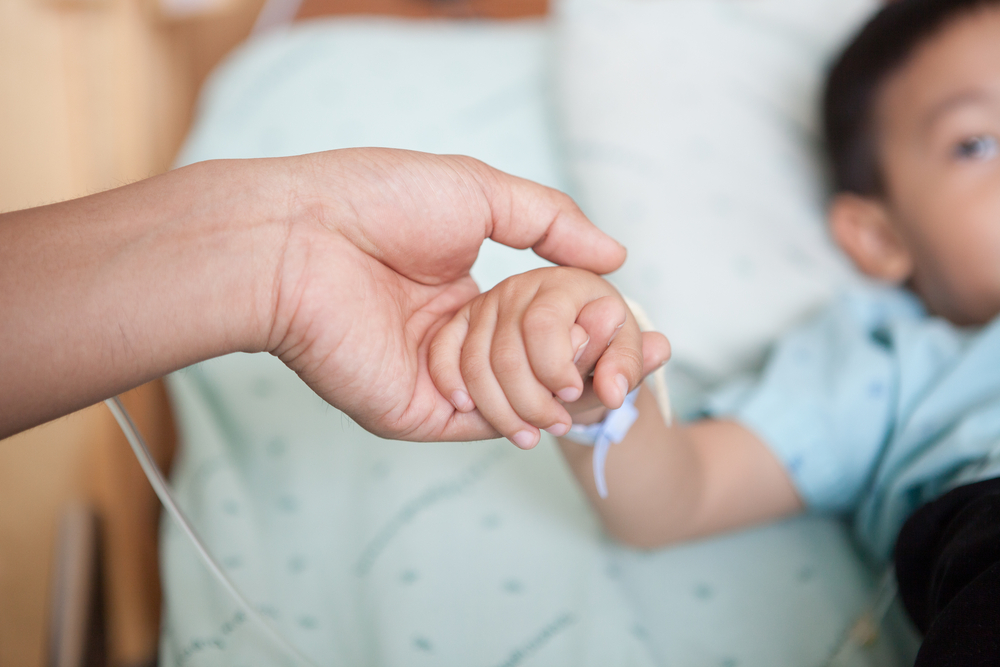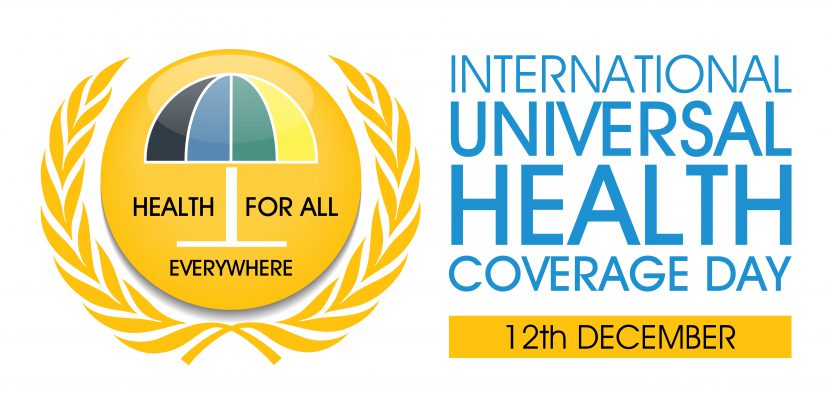The 12th December 2019, we are celebrating the second official Universal Health Coverage (UHC) Day. In order to prepare, let’s engage in a conversation about health.
What is Universal Health Coverage?
UHC is: promotive, preventive, curative, rehabilitative and palliative health services provided to all people and communities. It is health of sufficient quality which does not cause financial hardship. As covered by WHO, there are three objectives in UHC: the first being equity in access to health services, the second being sufficient quality of the services, and the third being the protection of people against financial-risk. (WHO, 2019)
UHC is not yet available to everyone, and it is causing extreme poverty for those that pay for health care without having the budget for it. Half of the world does not have UHC, around 100 million people are pushed into extreme poverty because they are paying for healthcare, and over 800 million people spent at least 10% of their budgets on health care. (WHO, 2019)

Children’s health
Children, like adults, are susceptible to health issues and poor access to health. And health is their right. Many diseases are killing children in large numbers, such as malaria, HIV, pneumonia, tuberculosis, and diarrhea. These diseases can be prevented and treated given the right services; which can be achieved in UHC.

In 2018, for 29% of global deaths of children under 5, pneumonia, diarrhea, and malaria were responsible. The diseases take a toll on the access to education; an unhealthy child cannot attend school. (UNICEF) Education is a basic human right that the child deserves to have. WHO emphasizes child and maternal care as being part of the global UHC needs. In many countries hardest hit by poverty, the child’s health and education rights are violated; this must be stopped. The UHC is a good place to start. (WHO, 2019)
What is being done?
Internationally, UHC has been included in the Sustainable Development Goals of the UN, and all UN Member States have agreed to achieve this by 2030. This would require 18 million additional trained health workers. With this demand for health workers, there is an expectation to add an estimated 40 million health sector jobs globally. (WHO, 2019)
Nationally, as reported by WHO, progress is being made with many countries, but policy leaders are still facing a crisis. They do not all know how to respond to their population’s health needs, and the costs of healthcare are only increasing. As a result, more people get sick, and poor.
These are the two concerns (poor health and financial hardship), and the two units used and applied in the measurement of the advancement of UHC. They come together, and can lead to a vicious cycle of poverty. Of course, each country has its own capacities; but they should each be able to provide health care for every single individual of their respective populations. (WHO, 2019)
What is the solution?
There are many issues which need to be worked out in order to reach this goal. The main activities are availability, accessibility, and capacity of health workers in the development of a people-centered health service system. Again, the individual should be at the root of the care.
WHO, and the UHC Coalition, advocates first and foremost for the funding of primary health care, alongside “good governance, sound systems of procurement and supply of medicines and health technologies and well-functioning health information systems.”

The reason why primary health care is incredibly significant is because it provides a holistic approach (physical, mental, and social) to health. The system has to be comprehensive in order to truly serve and empower the individual throughout his/her life. There is a certain way to provide adequate primary health care; it has to be focused on the individual, whether that be a child or an adult. (WHO, 2019)
WHO has been constantly referenced because UHC has been part of their Constitution since 1948; they aim to internationally monitor countries, assessing whether the governments are providing for both the poor and the rich living throughout. WHO has worked with numerous partners, including UHC2030, which powers the UHC Day Coordination Group. (WHO, 2019)
There are other importantly valuable non-profit organizations, such as The Global Fund, providing funding for the care programs of AIDS, TB, and malaria prevention and treatment. The NGO encourages UHC, and has outlined certain steps, such as building resilient and sustainable systems for health, and eliminating barriers to health care. (The Global Fund)
The Center for Global Development, a non profit think tank, emphasizes other areas for improvement: access for refugees, gender equality, social justice, and youth engagement. (Nemzoff and Glassman, 2019) There are thus large steps to be taken to achieve UHC.
Before this year
There have been important meetings that work towards this goal; earlier this year, in September 2019, a UN High-Level Meeting was hosted on the theme: ‘Universal Health Coverage: Moving Together to Build a Healthier World‘, bringing together many different health and political leaders to the UN stage. (UN) During this meeting, member states promised to move forward with UHC in the aim of meeting the goal of 2030, a resolution which has made many supporters hopeful for this year’s celebration of UHC Day. (UHC2030)
Humanium’s mission
At Humanium, we value and respect the child’s individual rights to education and health. Our projects, centered on the individual, aim to extend health aid to children in need. In four regions of Rwanda, partnering with AVSI, we worked on improving the mental health of adults and children in a country affected by a genocide. We also worked in the Gatsibo and Gicumbi district, improving the access to water, and as a consequence the hygiene and sanitation.
In Eappakkam, Tamil Nadu, India, we focused on a dual approach of improving health and access to education, which enabled over a thousand people, including children, basic human needs. In other areas of India, our projects contained a health component, with multiple sustainable development projects.
In short, at Humanium we see the individual and his/her basic needs; and our approach is holistic. Without basic health, education will not be attained properly.
Get involved
After the United Nations’ recognition of the importance of UHC in 2012, the Universal Health Coverage Coalition began to celebrate 12 December as UHC Day in 2014. This day did not become officially recognized by the UN until December 2017.
For this year, the coalition and its supporters are hopeful: under the hashtag HealthForAll, they are uniting and asking for leaders of member states of the UN to ‘Keep the Promise’ they made at the High-Level Meeting earlier this year. The UHC Coalition’s key issues are: Ensure Political Leadership Beyond Health, Leave No One Behind, Regulate and Legislate, Uphold Quality of Care, Invest More, Invest Better, Move Together, with the essential aim to promote gender equality and women’s rights. (Universal Health Coverage Day)

And they want you to get involved; you can find out more on their website: https://universalhealthcoverageday.org/, and share your plans for your celebration of UHC Day this December 12, 2019 !
Written by Leah Benque
To find out more:
Sources
Nemzoff, Cassandra, and Glassman, Amanda. (2019, May 2), There is No Such Thing as Universal Health Coverage without…” Center for Global Development. Retrieved from Center for Global Development Blog: https://www.cgdev.org/blog/there-is-no-such-thing-universal-health-coverage-without
The Global Fund. (n.d.), “FOCUS ON UNIVERSAL HEALTH COVERAGE,” The Global Fund. Retrieved from The Global Fund Media: https://www.theglobalfund.org/media/5913/publication_universalhealthcoverage_focuson_en.pdf
UHC2030. (n.d.), “UHC2030 is the global movement to build stronger health systems for universal health coverage,” UHC2030. Retrieved from UHC2030: https://www.uhc2030.org/
UNICEF. (n.d.), “Childhood diseases,” UNICEF. Retrieved from UNICEF Health: https://www.unicef.org/health/childhood-diseases
United Nations. (n.d.), “Universal Health Coverage – September 23,” UN. Retrieved from UN: https://www.un.org/pga/73/event/universal-health-coverage/
Universal Health Coverage Day. (n.d.), “Keep The Promise,” UHCDay.org. Retrieved from UHCDay.org: https://universalhealthcoverageday.org/
World Health Organization. (2019, January 24), “Universal health coverage (UHC),” WHO. Retrieved from WHO Newsroom: https://www.who.int/news-room/fact-sheets/detail/universal-health-coverage-(uhc)


